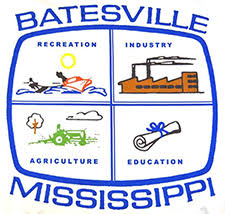Grocery store customers not limited, board says; churches and others capped at 10 people
Published 4:38 pm Saturday, March 21, 2020
Batesville’s grocery stores, pharmacies, gas stations, and convenience stores may stay open and operate as normal, according to the Mayor and Board of Aldermen.
The decision was made at a 3 p.m. conference call of the city board, and was in response to a mandate announced just two hours earlier by the Panola County Board of Supervisors that grocery stores would have to limit the number of patrons to 10 at one time.
“That’s absolutely ridiculous,” said Alderman Stan Harrison. “What do the supervisors think people are going to do? Stand in line for half a day? I don’t think so.”
The supervisors met in an effort to address the large crowds that continue to fill the grocery stores in Batesville, many of the shoppers coming from neighboring towns and counties. The county board met in a conference call deciding that shoppers at Piggly Wiggly, Kroger, Save-A-Lot, and other retail businesses, were constituting an unnecessary over-exposure of the coronavirus to the general population.
Batesville aldermen were adamant that supervisors have no authority to place regulations on business inside the city limit. All five board members were on the conference call held by Mayor Jerry Autrey and each voiced displeasure at the idea of the supervisors making directives about businesses located inside the city limits.
During the meeting, managers from Cracker Barrel called City Hall to ask if they were to indeed shut down in-facility dining and limit customers in the retail portion of their store to only 10. Other stores were also confused about the supervisors’ declaration and wondered how their particular business would be affected.
City Clerk Susan Berryhill said she had already had several calls from concerned merchants and customers who had seen online reports of the supervisors’ decision.
Batesville Police Chief Jimmy McCloud, who has been in contact with the Piggly Wiggly owners, and is monitoring the crowds at the store, strongly advised the city board against putting any limits (other than fire code occupancy) on the numbers of people entering and shopping in the store.
“Why would you change something that is working?” McCloud asked. “Right now they have every lane open and are actually moving people through the lines pretty fast. The problem is when you have people that can’t get in. This morning there were 150 people waiting to get in when they opened, and as that crowd grew it got edgier.”
The chief said managers at Piggly Wiggly told him they are serving about 3,000 customers a day and customers typically spend about 30 minutes on each visit. If the store was forced to allow just 10 patrons at a time, McCloud said, there would be trouble with crowd control for sure.
The supervisors wanted all businesses in the county to be limited to 10 patrons at a time, but aldermen were clear the Batesville Police Department would not enforce any mandate at a business inside the city limits.
“The supervisors jumped the gun on this one,” said Alderman Bill Duggar. “They can say what they want outside the city, but inside the city I think this board is the final say.”
Aldermen said the only limit of patrons in any grocery store, drug store, gas station, or convenience store would continue to be the Fire Department’s occupancy limit. In the case of Piggly Wiggly, that number is 500. McCloud said he doesn’t believe that store has broken it’s occupancy limit and has not had more than 500 inside at one time.
Aldermen did agree with the supervisors that all in-facility dining should be discontinued, and only curb-side delivery and drive-thrus are allowed.
In a 5-0 vote the alderman also adopted a resolution effective for the next 30 days that limits gatherings at any clubs, organizations, churches, etc., to no more than 10 people at one time. This rule, however, does not affect the stores listed above.
The adopted resolution was a hybrid of those adopted by the City of Oxford and the City of Starkville, with Batesville aldermen taking language from each to fit what they believe to best for local businesses.


